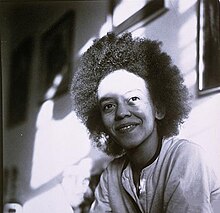“Nostalgia in reverse, the longing for yet another strange land, grew especially strong in spring.”
– Vladimir Nabokov, “Mary”
“Mary,” Vladimir Nabokov’s first novel, is nothing short of a masterpiece. Of course, “masterpiece” is a phrase that could be used to describe Nabokov in general.
Nabokov, known for his kind spirit and gentleness, wrote some of the most violent and controversial novels to date. Not physically violent, but when speaking in literary terms, his novels are scathing in their approaches to human life. Perhaps this is too simple a description, but a critic—if one even cares to label themselves such—should not squeeze the writer into any specific boxes. The same applies to Nabokov. To be a “Nabokovian” is to bathe in obscurity.
If you are a fan and admirer of lucid prose, reading Nabokov will be a fulfilling experience. There is no hesitation in saying that it will be transformative. Beware, however, because Nabokov makes even the best novelists look like amateurs. And in an arrogant fashion, Nabokov knew and acknowledged this. As Martin Amis pointed out, Nabokov was only comfortable with taking second place to one literary giant: Ireland’s own, James Joyce.
But as Amis noted, Joyce was not reader-friendly. My literature professor in Ireland describes “Ulysses” not really as a novel but as some other obscure reality itself. Nabokov found the gap between reader-friendliness and literary arrogance—both of which are needed to be a successful novelist.
Nabokov understood this early, especially in his first novel, “Mary.” It is a short book, easily finishable in two days. For me, it was also my introduction to Nabokov. Many know Nabokov because of “Lolita” and either love or hate him because of it (review coming soon). However “Mary” investigates a different side of life (you’ll understand when you read both) and touches on the compounding effects of love (but in a clearly distinct and less perverse way than “Lolita”), probing how youth and love are intertwined.
Lev Glebovich is the novel’s protagonist, living as an émigré in a boarding house in Berlin after leaving Russia because of the Revolution. One of the other members living there is an older man named Aleksey Alfyorov, who is waiting for his wife to arrive in Berlin. After finding himself stuck in an elevator with Alfyorov, Lev Glebovich finds himself recounting his first encounter with Mary, which was also his first encounter with love.
What follows are radiant descriptions of what it means to love and what it means to lose that love in its most desirable form—because, of course, love never truly disappears. Nabokov shines in this regard. Love is at the same time sublime and absurd, and Nabokov does justice to both sides of that same coin.
The plot intensifies, however, when Lev Glebovich finds out that “Mary” is now married to Alfyorov and is the one who will be arriving any day. This is the meat and potatoes of the novel, so I won’t give too much away. What Nabokov wishes for the reader, however, is to imagine that your first love (arguably the most important of all) is married to someone you have come to despise. When Lev Glebovich discovers this scenario, he must not only come to terms with the fact that Mary is no longer his Mary, but that Mary is in love with someone he truly despises. I’m sure we could all agree that this must be a nightmare.
So, in sum, after reading this novel, I have little doubt that you will want to explore Nabokov in his entirety. I’m unsure if there is a novelist to ever exist with more style than Nabokov. Read about this nightmare, and Nabokov will slowly become your literary dream.








